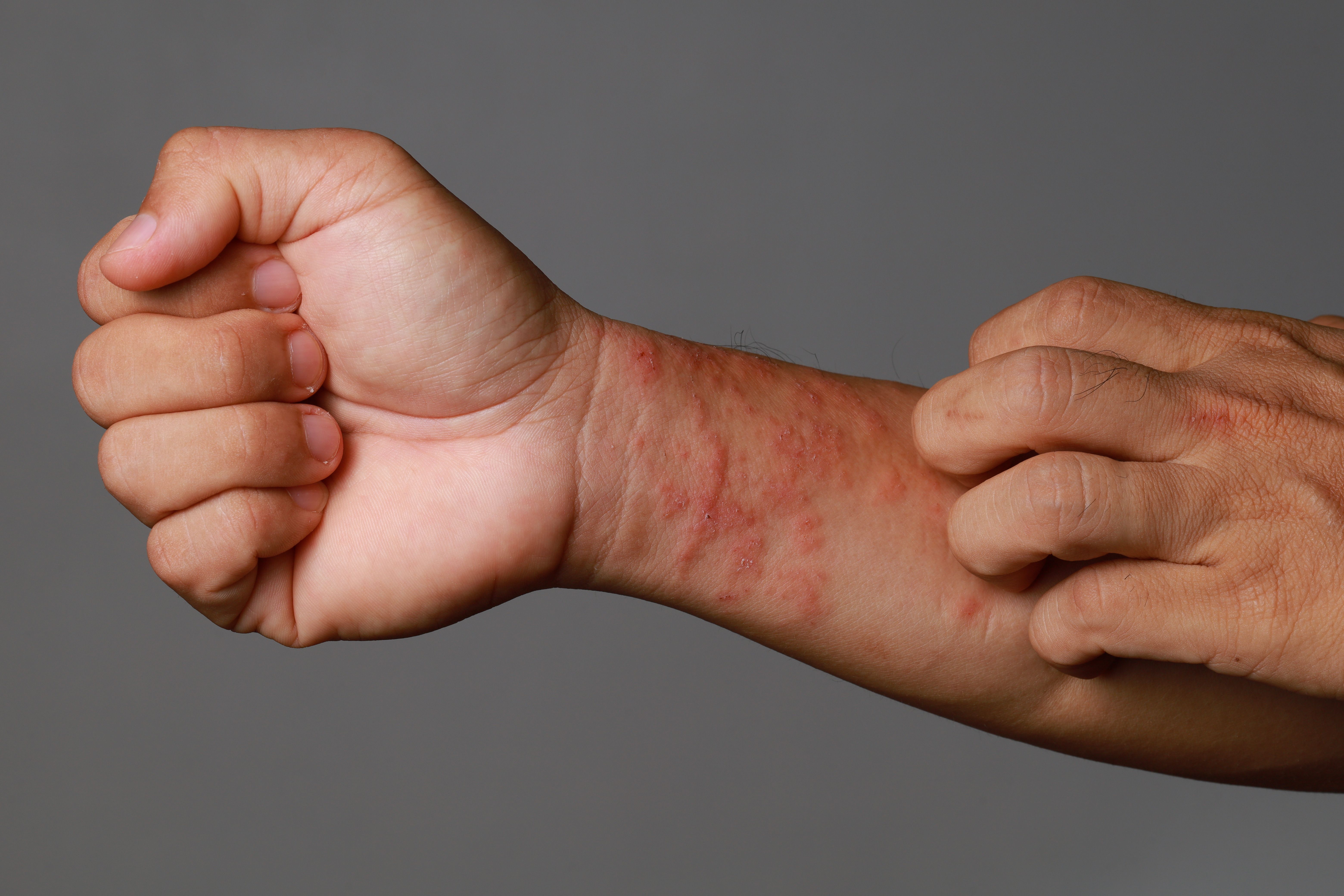- Acne
- Actinic Keratosis
- Aesthetics
- Alopecia
- Atopic Dermatitis
- Buy-and-Bill
- COVID-19
- Case-Based Roundtable
- Chronic Hand Eczema
- Drug Watch
- Eczema
- General Dermatology
- Hidradenitis Suppurativa
- Melasma
- NP and PA
- Pediatric Dermatology
- Pigmentary Disorders
- Practice Management
- Precision Medicine and Biologics
- Prurigo Nodularis
- Psoriasis
- Psoriatic Arthritis
- Rare Disease
- Rosacea
- Skin Cancer
- Vitiligo
- Wound Care
News
Article
In Europe, Individuals With Atopic Dermatitis Face Impairments in Happiness Versus Other Conditions
Author(s):
Patients with AD and psoriasis both report diminished levels of happiness compared to the general population.
In European countries, patients with atopic dermatitis (AD) experience greater impairments in overall happiness versus patients with conditions like psoriasis, for example, according to a study published in the Journal of the European Academy of Dermatology and Venereology.1
Researchers also assessed factors such as satisfaction with life, negative affect, positive affect, and Dermatology Life Quality Index (DLQI).
Image Credit: © ltyuan - stock.adobe.com

Background and Methods
It has been well-documented that individuals with chronic conditions such as AD and psoriasis experience heightened rates of psychiatric comorbidities and substantial effects on quality of life.2
Authors of the present study sought to assess the relationships between AD, psoriasis, disease-related factors, and measures of well-being and quality of life.
Researchers conducted the multicenter study across 8 European countries and recruited adults with psoriasis or AD between October 2021 and February 2023. Participants completed a detailed questionnaire on disease severity, quality of life, and well-being. Health care professionals provided clinical data and treatment histories.
Findings
The study included a total of 1,039 patients—723 with psoriasis and 316 with AD. The final participant cohort was drawn from Austria (24.6%), Poland (24.0%), Italy (11.9%), Ukraine (10.2%), Malta (9.3%), Germany (8.9%), Portugal (8.9%), and Romania (2.2%). The median age of participants was 40 years, with a range from 18 to 86 years.
Researchers found that psoriasis was more prevalent, affecting 69.6% of the participants compared to 30.4% with AD. Individuals with psoriasis were generally older (median age 44 years) compared to those with AD (median age 30 years). Objective severity assessments showed that patients with AD had a higher median SCORing Atopic Dermatitis score (36.50) compared to the median Psoriasis Area and Severity Index score for psoriasis patients (6.00). Subjective severity was similar across both conditions.
A large majority of patients with both psoriasis (94.6%) and AD (98.1%) reported undergoing treatment at the time of the study, with AD being more frequently treated.
Researchers reported no significant differences in heuristic happiness and life satisfaction between patients with psoriasis and AD p = 0.488 and p = 0.952, respectively).
Positive affect scores were slightly higher for psoriasis patients, but this difference was not statistically significant. Dermatology Life Quality Index (DLQI) scores were higher for AD patients, indicating a greater impact on quality of life.
Researchers reported differences in disease severity (both objective and subjective) and treatment approaches were notable across countries. For example, patients in Ukraine and Poland reported higher severity scores, while those in Austria and Malta reported lower severity.
Variations in quality of life measures such as satisfaction with life, negative affect, and DLQI were found between countries. Italy reported the highest levels of heuristic happiness and satisfaction with life, whereas Ukraine and Romania had the lowest.
Conclusions
Potential limitations of the study, as noted by researchers, include potential differences and smaller cohorts between countries, with the potential of selection bias.
"This study highlights significant variations in QoL and happiness among psoriasis and AD patients across Europe, with AD patients notably more impacted. It highlights the importance of ensuring adequate treatment access and advocates for positive psychological interventions to enhance patient happiness," according to Ziefruend et al. "Recognizing these disease- and country-specific differences is crucial for shaping future treatment strategies and health policies aimed at improving the lives of those affected by psoriasis and AD."
References
- Ziehfruend S, Wecker H, Mittag S, et al. Happiness across the borders—a cross-sectional study among patients with psoriasis and atopic dermatitis in Europe. J Eur Acad Dermatol Venereol. August 14, 2024. https://doi.org/10.1111/jdv.20288
- Balato A, Zink A, Babino G, Buononato D, Kiani C, Eyerich K, et al. The impact of psoriasis and atopic dermatitis on quality of life: a literature research on biomarkers. Life (Basel). 2022; 12(12): 1–16. https://doi.org/10.3390/life12122026












